The Impact of Lockdown on our Children
How has the enforced isolation of lockdown affected the behaviour of our children?
Lockdown has hit us all hard, and it’s definitely affecting our children. But in what way – and is there anything we can do about it?
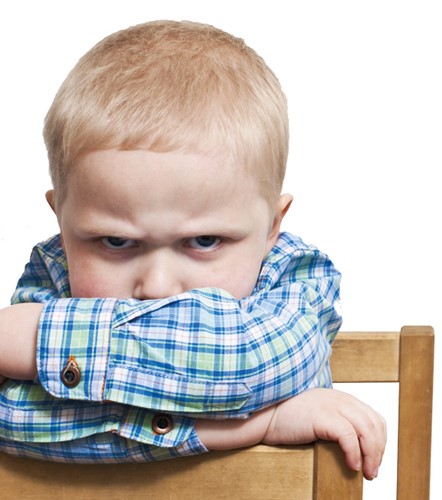
On a personal note, we’ve noticed a change in our own children’s behaviour – becoming more short tempered, or crying more frequently for example. And several of our friends have reported similar things.
We decided to find out if this was a trend and over 1,100 of you answered our survey to tell us if you felt the lockdown had changed your children’s behaviour.
We asked one, simple question: “Has your child’s behaviour changed over the lockdown?”
The results are very interesting.
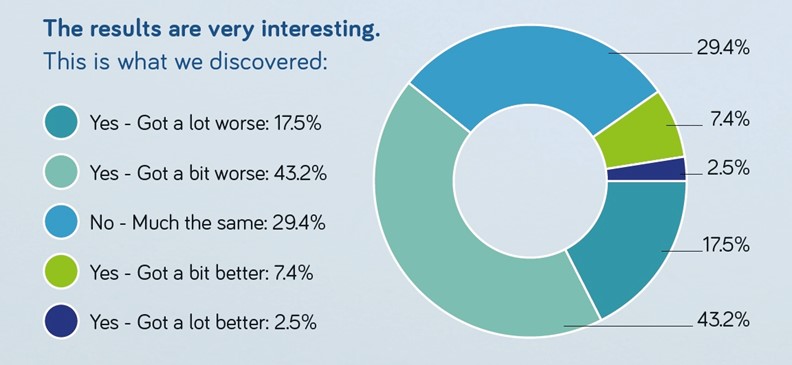
So… overall, 60% of parents feel that their children’s behaviour has got worse over lockdown. Which is a significant amount – so if you are one of them, then you are definitely not alone!
30% of parents feel their child’s behaviour has stayed the same and, interestingly, 10% said that their child’s behaviour has actually improved over lockdown.
But why? And is there anything we can do if we’re in the unlucky 60%?!
We have enlisted child behaviour expert Anne Goldsmith, from Behaviour First Consultancy, to help us work out what these results mean.
Tim Freed, Founder and Editor
Here’s Anne:
I find the results of Toddle About’s survey interesting and intriguing at the same time.
First we must try to understand
The jump out statistic is that 60% of parents feel their child’s behaviour has got worse during lockdown. Before trying to fix the ‘problem’, it’s important that we try to understand what is causing this change in our children’s behaviour.
All children are different, and the causes for changes in behaviour will be many and varied. It’s important to remember that all children go through phases with their behaviour with or without lockdown. So remember to keep a sense of perspective. Children are pretty good at adapting if given support, time and space.
Having said that, these are unusual times where all families are going through a huge, shared upheaval, full of anxiety and stress. There are many pressures that all families are experiencing, and they will no doubt be contributing to this overall trend in more challenging behaviour.
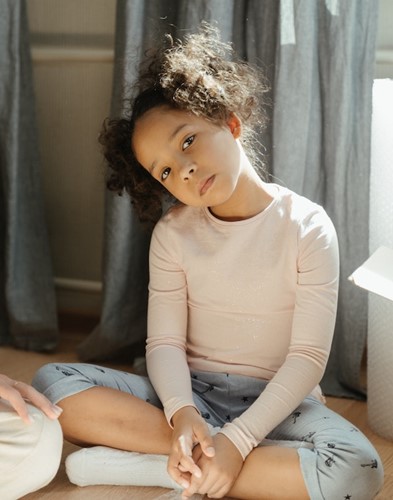
Loss of routine
One reason for this trend could be the negative impact that changes in routine and structure can have on young children.
For example, young children’s social interactions have changed dramatically. They may no longer be seeing their usual carers, such as grandparents, nursery and preschool staff. They may not be seeing friends either. These daily interactions play a significant role in their early development.
Such changes are difficult enough for adults to come to terms with, let alone a child of pre-school age. Suddenly thrown out of their usual routine, children can feel confused and often scared, which can then be expressed in their behaviour.
Fresh air, exercise, play and sleep
We’ve had some wonderful, hot, sunny days during lockdown and previously they would have been enjoyed with trips to the play area, the seaside and the zoo. None of these have been possible for nearly 4 months.
As well as being fun activities, these outings play an important role for children, helping them to get a healthy dose of fresh air and exercise, tiring them out ready for a big sleep. Fresh air, exercise, play and sleep are all important factors in promoting positive behaviour. Without opportunities to release excess energy and experience a regular sleep pattern, children can become overtired. And this normally results in negative behaviour.
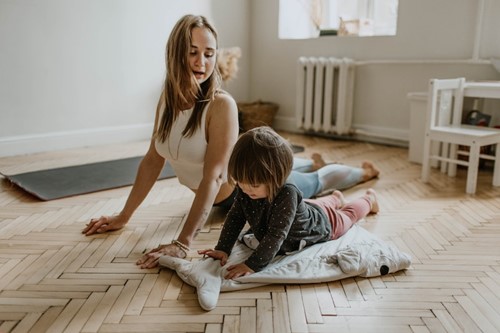
Parental Stress
It’s not just the children – parents are suffering too under lockdown, and it’s hard to overstate the knock-on effect this can have to our children.
Parents lives have also been turned upside down. Many parents have been unable to work, or are now working from home. They feel under pressure to be their child’s teacher and keep them occupied all the time. This can be really tough.
Don’t get me wrong, I know there are upsides too – many parents are enjoying being able to spend more time with their children and doing more quality activities together, such as going for bike rides, walks and cooking together. It’s wonderful to see families out and about together.
But I also know from speaking to parents that this time has been extremely challenging for them. The feeling that they have to occupy their child constantly – not knowing how best to do so and then feeling guilty and like a failure when they don’t achieve this. I know many parents who have struggled with a sense of losing their identity because, for them, work was their time, their release, and their time for some breathing space. Having that taken away has been stressful for them. Children are incredibly sensitive and will pick up on stress from their parents - and this can also contribute to negative behaviour.
I’ve spoken to parents recently with toddlers who have experienced an increase in behaviours such as biting, pinching and scratching since they have been working from home with their child. When they used to go out to work and their child went to nursery or pre-school, these behaviours didn’t exist. These are the sort of situations that keyworkers at nursery and pre-school deal with every day. They support the children in playing nicely, sharing, taking turns and learning how to self-regulate.
The results aren’t all bad
It is interesting that 10% of parents who took part in the survey say their child’s behaviour has improved and 30% feel it hasn’t changed much. I’m not surprised by these statistics.
Release from School Pressure
For many children of all ages, school can feel challenging and like an added pressure in their already complicated life. The need to sit still, listen, concentrate for long periods of time can be difficult for many children, as can be trying to complete work set and trying not to constantly compare themselves to their peers. I work with many children – girls and boys of all ages - who feel like this. So I know that many children and their parents have found the unusual situation of lockdown to be a positive experience in that it has provided them and their child with some breathing space and a break from the pressures and triggers they felt at school.
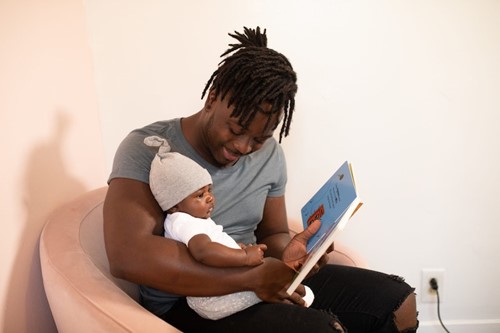
More Time Together
Simply spending time with your children in a shared activity, giving them your full attention, will fill them with joy. Young children who are now staying at home and having more quality time with their parents, especially if their parents are working less than normal, may well have found this situation enjoyable, because they are receiving much more of their parents’ attention by being at home all the time.
This could go some way to explaining the 40% of children whose behaviour improved or showed very little change.
Dealing with Challenging Behaviour
If you’re a parent experiencing difficulties with your child’s behaviour, take a look at my suggestions which you might find helpful and will also provide you with support.
Suggestions to help you cope with negative changes in your child’s’ behaviour
- Always remain calm
- When it comes to supporting your child, be calm and try to understand their challenges
- Make what they have to do fun – when it becomes a chore or a battle, it’s time for a break
- Avoid watching or listening to the news too often when your child is around. A lot of what we see and hear can create fear for adults, so imagine the impact on your child, who doesn’t have our life experience and level of self-regulation as support
- If you have a routine, by all means follow it, yet at the same time be flexible
- When you stop for lunch, sit and eat together – take time to relax together
- Be your child’s guide - model the behaviour you want to see – you are your child’s role model
- Be consistent with what you say and do
- Children often feel overwhelmed no matter how young they are. So if you’re feeling unsettled, they’re likely to be feeling the same too
- If your child is biting, scratching or pinching – remain calm – not always easy I know! You could say “Biting (scratching, pinching) hurts. I know you wouldn’t like it if someone was to bite you.”
- It’s okay if your child doesn’t do any work on one day, two days, ten days – it doesn’t make you a bad parent – go easy on yourself
- Every day is different, some days will work and others simply won’t – that’s okay. Accept each day for what it is, let it go and move onto the next day
In Conclusion…
It’s great to see people conducting surveys like this. Lockdown is a big change for everyone and parenting can feel lonely and overwhelming at times. It can be reassuring to know that others are experiencing the same challenges with their children’s behaviour.
The impact of lockdown on our children - their education, their behaviour, their mental health - will continue to be felt from now and into the future. The same can be said for adults and parents alike. The full impact probably won’t be known for many years. All we can do as adults, as parents, is to focus on what we can control. Putting our time, focus and energy into that is what will get us and our families through this positively and ‘safely’ out the other side.
----------------------------
 About Anne Goldsmith
About Anne Goldsmith
Anne is mum to two teenagers, and a Positive Behaviour Consultant and Parenting Coach. She is the Director and Founder of Behaviour First Consultancy.
After working as a teacher for 16 years, and seeing her own children struggle with negative, disruptive and extreme behaviours, Anne set out to help other parents going through similar difficulties. As a mum, she blamed herself, experiencing embarrassment, fear and anger… but she took a ‘step back’ and worked out how to help her children. Now Anne helps parents to understand their own children, their behaviour and solve the underlying issues.
www.behaviourfirstconsultancy.co.uk
Contact Anne: 07754 882127 or annie_goldsmith@hotmail.com
Social: facebook.com/behaviourfirstconsultancy; twitter.com/annemgoldsmith; uk.linkedin.com/in/annegoldsmith